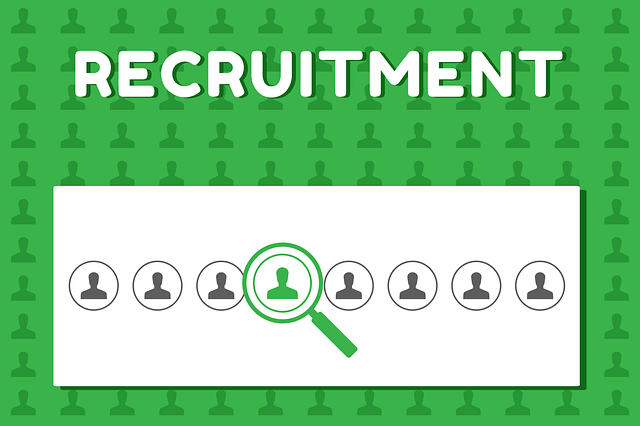Depending on which source you refer to the recruitment cycle can have anything from 4 to 12 steps involved in it. Some of these steps can be combined together, some are definitely distinct elements, what isn’t in dispute though is that getting recruitment right is imperative for the success of your business, getting it wrong can be costly, time consuming and a real drain on you and your business.
Stages in the recruitment cycle
We believe that there are actually 5 key stages in the recruitment cycle. Different people within an organisation will be involved in these stages and although recruitment is not an overly complicated area of HR it does require an investment of time to effectively plan and execute the cycle.
Stage 1 – Identify Your Requirements
This may seem blindingly obvious but the first stage in any recruitment cycle should always be to decide on what the vacancy in your business is and what you want from the person who fills that vacancy. Employers usually hire when someone leaves or moves to another role within the business but are you going to replace them like for like? Recruitment also happens when a business grows or diversifies and then needs to take on new staff. All of these instances offer an opportunity to stop and think, if someone leaves do you actually need to replace that employee? If the answer is yes then have the needs of that role changed and is that job description up to date? When hiring for a completely new role it is vital to identify the requirements of that role, involve a variety of stakeholders in those discussions and carry out an in-depth job analysis so that you establish a clear picture of the responsibilities of the role and the type of person you want to bring in.
Stage 2 – Plan Your Recruitment Process
The planning doesn’t stop when you have established your job requirements. You need to move on and plan your process to ensure that you give yourselves the best possible chance of recruiting the most suitable candidate. Consideration should be given to how you are going to advertise the role. You could use online job boards, recruitment agencies, your company social media, word of mouth or a combination of these methods. Your choice will be determined to some extent by the role requirements and how difficult it is likely to be to find your ideal candidate. Another determining factor will also be your budget and the staff resources and time involved in recruitment which can be unexpectedly draining. Even at this stage you should also be setting aside time to discuss and put in place a plan for how you are going to shortlist candidates, what selection methods you are going to be using and even looking at an induction and onboarding plan so that the ground work is in place to make the process as smooth and seamless as possible.
Stage 3 – Advertising
Having a defined advertising plan is fantastic but it needs to be backed up by an eye-catching advert. The information that you put in an advert is crucial and the recruitment experts at Monster have a really useful guide on the subject. To summarise you should start off by having an understandable and attractive job title as this is the first thing that prospective clients will see and the majority of candidates use job titles as their primary search criteria when looking for vacancies. The advert should give candidates a flavour of what to expect and what is expected of them along with information about job location, salary and benefits and your company. The advert should be appealing to your target audience and should end with a call to action with details of how to apply.
Stage 4 – Applications
Dealing with applications can be the most time-consuming aspect of the recruitment cycle. If your advert is well written and sets out the skills, experience and knowledge that you are looking for then in theory you should end up with a pool of applicants who closely match your requirements. That said you will always receive a number of applications from candidates who are unsuitable but reading through their CVs to establish that will take time. The shortlisting process then should help you to work through applications in a structured manner so that you end up with a list of candidates who closely meet your requirements and who you want to meet for interview to find out more about. Handling the communication at this stage is also important. You should decide whether or not to let candidates know that they have not been selected for interview. You could put a line in your advert to manage candidate expectations that if they have not heard from you within a set timeframe then they should assume that they have been unsuccessful. Communicating with those you are interviewing is also your first chance to make a positive impression on them. Recruitment is as much about a candidate selling themselves to you as it is about you selling your business and the job opportunity to the candidates so the communication has to be on point. Make your invite to interview welcoming, send the candidates some extra information about your company, its culture and give them something to engage with if possible so that it builds a sense of excitement in the opportunity.
Stage 5 – Selection
Selection isn’t just about holding a typical interview during which you fire a variety of random questions at candidates and hope that they give you an answer that you like. Again, preparation is needed so that the questions you ask give you the information that you need to determine if the candidate can perform and be successful in the role and how they will fit into your team. Hiring someone is a big step though and it is important to have as much information to add validity to your decision making process as possible so it is worth considering other selection methods to use in addition to interviews. In some instances, companies will invite all shortlisted candidates to participate in a group exercise so they can assess how they work with others and assess who may possess certain skills such as leadership or critical thinking. On occasions candidates might take part in a discussion group about a specific subject with members of the existing team to see how they interact. Skills tests are a great way of giving candidates a snapshot of what is involved in the role on offer as well as testing them to see how they perform that aspect of the job. A skills test can range from writing letters, to analysing figures, commenting on how to handle a relevant scenario or completing a suitable practical task for more manual jobs. Some companies will also carry out personality or psychometric tests to assess a candidate’s profile and how they may fit with the existing team. There isn’t a one size fits all approach to selection so it is worth considering what would work best for your company so that you can ultimately make a well rounded and fully informed decision.
Stage 6 – Hiring and onboarding
You’ve carried out your interviews and found the ideal candidate and so now it’s time to make them an offer. Once your offer has been accepted you move into the onboarding phase. Make sure that you get all the paperwork sorted with your new hire and ideally do that before day one so that they are as ready as possible to hit the ground running rather than spend their first day filling in forms. Don’t forget too to complete your pre-employment checks, gather references and confirm right to work in the UK. During the onboarding period before the employee starts you can share company information with them, invite them to come in and meet colleagues or give them a call to find out if they have any questions and let them know how excited you are about them starting and making them part of your successful team. Building engagement and motivation before an employee joins is a great way to build a connection, set expectations, create an understanding of company culture and help someone to feel at ease and welcomed.
Do you have any questions about todays blog, need help in becoming legally compliant with contracts/policies or can we support you in taking away any people pains to give you peace of mind?
If you answered yes to any of the above, just give us a call at CUBE HR on 01282 678321, or book in a FREE 30 Minute HR Health Check here FREE HR Health Check and we’ll happily give your business a full HR overview with our personal recommendations absolutely FREE!
Why not also check out our blog on a similar topic How to make the best of your recruitment strategy
We also have a YouTube channel with loads of handy videos outlining various HR related scenarios.




